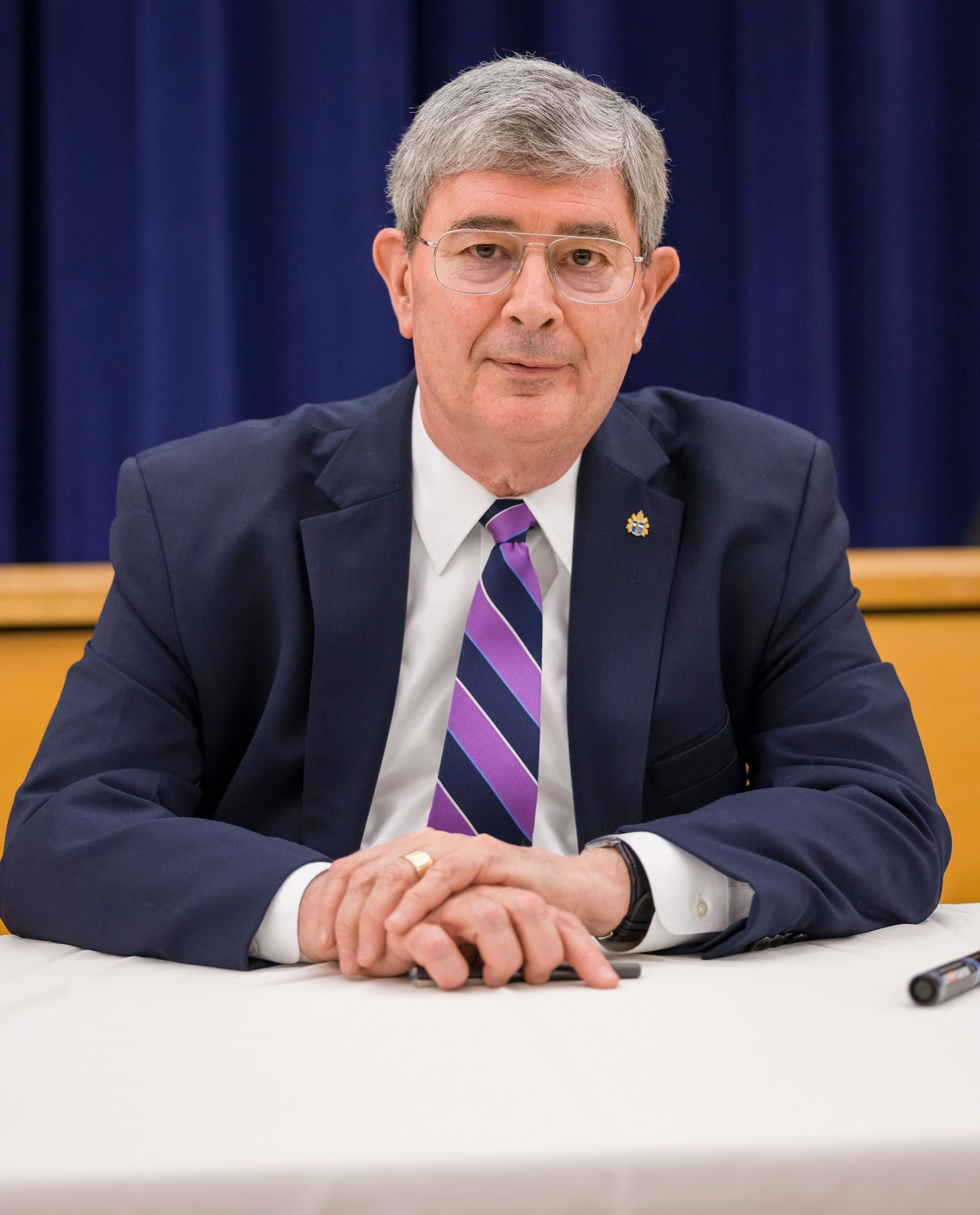Samuel Johnson, that great coiner of aphorisms, averred that “People need to be reminded more often than they need to be instructed.” In that Johnsonian spirit, here are some reminders about what has been happening in Ukraine, for Sen. J. D. Vance and others who persist in certain confusions about the situation and its implications.
Reminder: NATO did not cause the war in Ukraine by “marching to Russia’s borders.”
NATO is a defensive alliance and always has been; as its first secretary general, Sir Hastings Ismay, once put it, the purpose of NATO was to “keep the Americans in, the Germans down, and the Russians out.” The new democracies of Central and Eastern Europe were anxious to join NATO in the 1990s, not because they wanted to invade Russia, but because they feared a revanchist Russia wanting to re-colonize them. The same concern about Russian intentions prompted NATO’s two new members, Finland and Sweden (neither known for aggressiveness in recent centuries), to seek admission to the alliance. In February 2022, NATO was as likely to invade Russia as it was to invade Botswana. The claim that NATO threatened Russia is Russian propaganda, rooted in historic Russian paranoia. No serious person takes it seriously.
Reminder: The Russian invasion of Ukraine was not a matter of redressing the grievances of Ukraine’s Russian speakers.
If that had been the case, why did so many Russian speakers in the Ukrainian army fight so valiantly to stem the initial Russian onslaught? Vladimir Putin, a thoroughly wicked dictator who maintains power through an Orwellian combination of the Big Lie wedded to the Big Terror, made his intentions pluperfectly clear days before the invasion in 2022: He intended to destroy Ukraine as a state, a nation, and a culture. That genocidal intent underwrites the barbarism with which Putin’s minions have waged war in Genghis Khan mode, murdering, raping, pillaging, stealing children, and indulging in gratuitous destruction of non-military facilities, including hospitals and kindergartens. Putin, the man who described the collapse of the Soviet Union as the “greatest geopolitical catastrophe of the century,” is seeking to reverse history’s verdict in the Cold War, Ukraine being first on Vlad’s Revenge Tour.
Reminder: The United States can well afford to support Ukraine.
As Mark Helprin wrote in the spring issue of The Claremont Review of Books, “Our domestic disintegration and decline are moral and intellectual rather than financial in origin, as we are still by far the richest country in the world. . . . A nation that believes it cannot deal with internal and external problems simultaneously is a nation that, perforce, cannot last.” Exactly right, and those who would lead us, across the political spectrum, should acknowledge it.
Reminder: Religious conviction still counts in world affairs; the issue is whether the religious conviction in question is ordered to the true God or false gods.
Ukraine’s religious leaders and the faith of its people have been essential in sustaining that hard-pressed country’s Davidic struggle against the Russian Goliath. Major Archbishop Sviatoslav Shevchuk of the Ukrainian Greek Catholic Church, who was marked for assassination by invading Russian forces that were stopped a few kilometers from his home, has been especially impressive, speaking regularly to his people through video messages of faith, hope, and fraternal charity. By contrast, Patriarch Kirill of the Russian Orthodox Church has buttressed Putin’s lies and aggression with statements that can only be regarded as blasphemous—and in doing so, Kirill has made it even harder for a domestic Russian opposition to Putin’s dictatorship to form. Putin has more blood on his hands, but Kirill’s hands are not clean, and his apostasy has had its effect. So has Major Archbishop Sviatoslav’s noble Christian witness.
Reminder: Signor Ferrari had it right in Casablanca.
For those who have forgotten a telling line in the greatest movie Hollywood ever made: Ferrari (Sydney Greenstreet) wants to buy the Café Américain from Rick Blaine (Humphrey Bogart) or go into partnership with him. When the expat American saloon keeper declines, Ferrari says, “My dear Rick, when will you realize that, in this world, isolationism is no longer a practical policy?” Mark Helprin explains why:
No nation is forever safe, there is no safety in isolation, and the argument for isolationism that its alternative is the ill-judged, disastrous use of force can be valid only if one despairs of the possibility of probative behavior, accurate determinations, self-discipline, and wise choices. Such a loss of confidence and courage would in turn and entirely unto itself mean the stasis of civilization and its inevitable defeat. For civilization must be defended, as always, actively. And, as always, at risk.
Words to the wise that should be sufficient, especially as reminders.
George Weigel’s column “The Catholic Difference” is syndicated by the Denver Catholic, the official publication of the Archdiocese of Denver.

George Weigel is Distinguished Senior Fellow of Washington, D.C.’s Ethics and Public Policy Center, where he holds the William E. Simon Chair in Catholic Studies.
First Things depends on its subscribers and supporters. Join the conversation and make a contribution today.
Click here to make a donation.
Click here to subscribe to First Things.
Image by rawpixel, licensed via Creative Commons. Image cropped.
Visions of Hell
A Prisoner’s Cinemaby justin leepassage press, 257 pages, $29.95 A first proposition: High-quality film video lowers the…
Introducing Secret Third Thing
First Things is proud to introduce a new podcast series. Secret Third Thing is a show about…
In the Footsteps of Aeneas
Gian Lorenzo Bernini had only just turned twenty when he finished his sculpture of Aeneas, the mythical…


